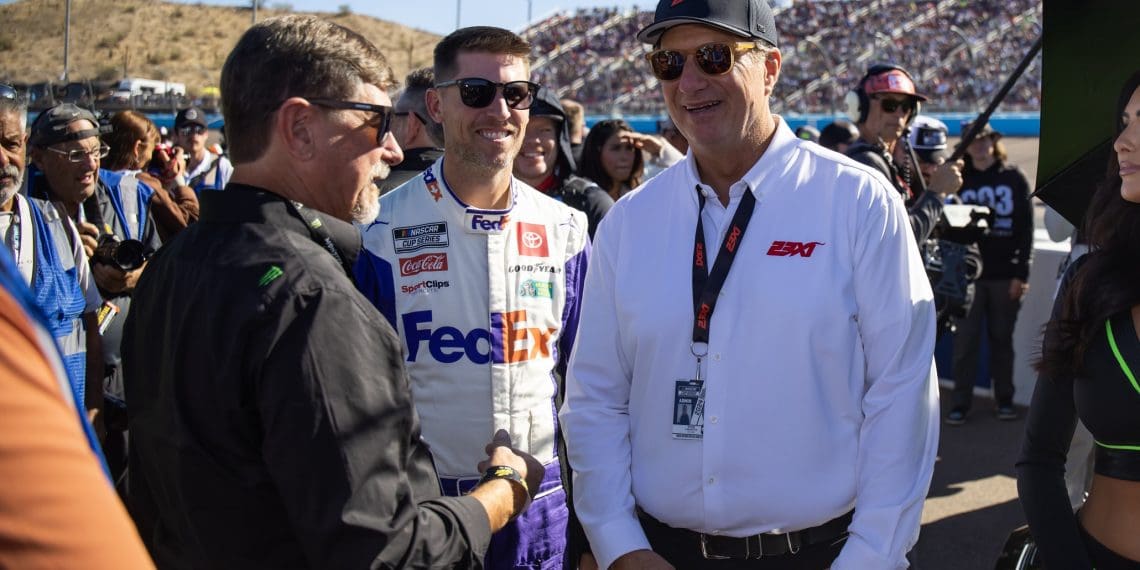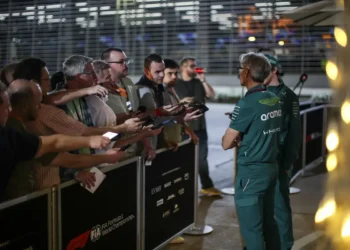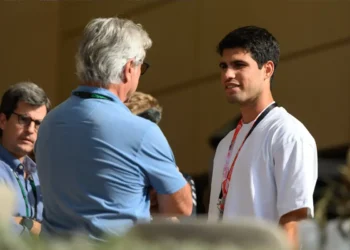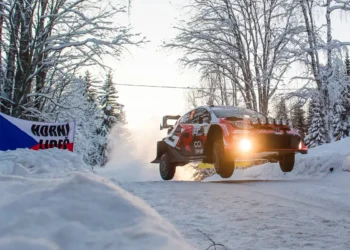In a dramatic turn of events, 23XI Racing and Front Row Motorsports (FRM) have secured a pivotal victory in their ongoing legal battle with NASCAR. A revised preliminary injunction has been granted, allowing both teams to retain their charters for the 2025 season. This decision, handed down by Judge Kenneth D. Bell, ensures the plaintiffs can race as chartered teams next year and forces NASCAR to approve their purchase of a third charter each from Stewart-Haas Racing. However, this battle is far from over, as the final verdict could still reshape the future of NASCAR.
The Topsy-Turvy Road to the Preliminary Injunction
The lawsuit, spearheaded by Michael Jordan, Denny Hamlin, and FRM owner Bob Jenkins, revolves around antitrust concerns and NASCAR’s control over charter agreements. Initially, Judge Frank D. Whitney denied a motion for a preliminary injunction, stating the teams failed to prove “irreparable harm” if they raced as open teams. This led plaintiffs’ attorney Jeffrey Kessler to re-file the motion, shifting the case to Judge Bell, who ruled in their favor.
“The court’s ruling allows 23XI and Front Row Motorsports to race existing cars as chartered teams in next year’s Cup Series,” Kessler said. “We are confident in the strength of our case and will continue to fight for a more competitive and fair sport.”
Charter Controversy: A $50 Million Gamble
Both 23XI Racing and FRM have spent a combined $50 million to acquire additional charters from Stewart-Haas Racing. The injunction guarantees their use for 2025, but should NASCAR win the broader lawsuit, these transactions could be nullified. NASCAR has also been accused of attempting to leverage approval of the charter sales to force the teams to drop the lawsuit, an allegation strongly denied by Stewart-Haas Racing president Joe Custer.
“If the teams lose the case, then the charter transfer will likely be revisited,” journalist Bob Pockrass explained, highlighting the tenuous nature of the deal.
Implications for 23XI and FRM
The approval of the preliminary injunction is more than just a temporary win—it has far-reaching consequences. Racing as chartered teams provides guaranteed entry into all 36 Cup Series races, higher revenue from NASCAR’s charter system, and secures the futures of their drivers. For instance, Tyler Reddick, who reached the Championship 4 in 2024, could have left as a free agent if 23XI lost its charter, potentially destabilizing the team’s competitive edge.
With their third charter confirmed, 23XI Racing has already announced a third car for Riley Herbst in 2025. Meanwhile, FRM is rumored to place Zane Smith in their expanded lineup.
NASCAR’s Next Move: Retaliation or Recalibration?
While NASCAR has the option to appeal the ruling, its broader strategy remains uncertain. The lawsuit challenges NASCAR’s longstanding control over charters and revenue distribution, potentially setting a precedent that could impact the entire sport. If 23XI and FRM ultimately prevail, it could usher in a new era of team empowerment, reducing the sanctioning body’s centralized authority.
“We’re confident in our case,” Kessler said, emphasizing the plaintiffs’ commitment to reforming NASCAR. “This fight isn’t just for the teams; it’s for the drivers, sponsors, and fans.”
What’s at Stake?
For 23XI and FRM, this lawsuit isn’t just about charters—it’s a fight for fairness and financial equity in NASCAR. Their victory in securing chartered status for 2025 provides short-term stability, but the looming final verdict could alter their fortunes entirely. NASCAR, meanwhile, faces the challenge of balancing its authority with the increasing demands for fairness and transparency from teams.
As the 2025 season inches closer, the stakes couldn’t be higher. While 23XI and FRM celebrate their hard-fought win, the battle for the future of NASCAR is far from over.










